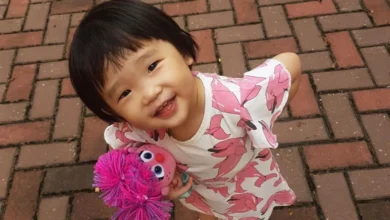Comprehensive Review of Malala: He Named Me Malala (2015)from a Family Strengthening, Securing a Friendly and Protective Environment for Children®, and Rights-Based Parenting® Perspective

He Named Me Malala is a 2015 American documentary film directed by Davis Guggenheim. The film presents the young Pakistani female activist and Nobel Peace Prize laureate Malala Yousafzai, who has spoken out for the rights of girls, especially the right to education, since she was very young. The film also recounts how she survived and has become even more eloquent in her quest after being hunted down and shot by a Taliban gunman as part of the organization’s violent opposition to girls’ education in the Swat Valley in Pakistan. The title refers to the Afghani folk hero Malalai of Maiwand, after whom her father named her.
1. Family Strengthening
One of the film’s most compelling aspects is Malala’s relationship with her father, Ziauddin Yousafzai. Ziauddin’s unwavering support for Malala’s education and independence is central to her growth as a strong, vocal advocate for girls’ rights. Despite the cultural barriers they face, Ziauddin instills a sense of courage, strength, and equality in Malala, empowering her to speak up against the oppressive forces that threaten her community. Their relationship emphasizes how supportive and nurturing family bonds foster children’s resilience and ability to stand for their beliefs. This dynamic highlights the essential role of family in nurturing a child’s potential and shaping their future.
- Key Lessons for Family Strengthening: Ziauddin’s belief in Malala’s right to education, as well as his open communication and strong emotional support, underscore the importance of a home environment that respects each family member’s voice. Parents are encouraged to actively listen to their children, respect their dreams, and serve as role models for courage and compassion. This aspect of the film reminds us that by prioritizing education and encouraging personal growth, families create a foundation for resilience and self-empowerment in their children.
2. Securing a Friendly and Protective Environment for Children®
Malala’s story reflects the critical importance of a safe and secure environment for children’s development. Growing up in the Swat Valley under the Taliban’s regime, Malala faced tremendous obstacles, including threats to her life simply because she pursued her right to learn. The film captures the challenges children face in conflict zones and under oppressive systems that deny basic rights. Malala’s journey reminds us of the urgent need to secure environments where children can thrive without fear, one that protects them physically, emotionally, and intellectually.
- Takeaway on Creating Safe Environments: He Named Me Malala encourages parents, educators, and community leaders to advocate for environments where children feel safe to learn and express themselves. In promoting safe spaces, the film underscores the importance of creating protective policies and advocating for peace, especially in regions where education is under threat. Family and community efforts to prioritize the welfare and safety of children are critical in safeguarding their right to education and freedom from harm.
3. Rights-Based Parenting®
The film poignantly illustrates Rights-Based Parenting® by presenting Malala’s parents, especially her father, as advocates for her rights and supporters of her autonomy. Ziauddin’s approach to raising Malala defies traditional patriarchal norms by emphasizing her right to self-expression and education. He doesn’t see Malala as a child with limitations but as an individual with potential and purpose. This parenting approach aligns with Rights-Based Parenting®, which is grounded in recognizing children as individuals with inherent rights, fostering their self-esteem, and encouraging them to participate in decisions affecting their lives.
- Parenting Insights: Ziauddin’s example is a model for Rights-Based Parenting®, as he respects and actively supports Malala’s voice, even when it goes against societal expectations. He does not view her education and aspirations as less important because of her gender, instead valuing her autonomy and treating her with respect. For parents, this aspect of the film reinforces the importance of nurturing children’s rights to education, self-determination, and self-expression, fostering a sense of equality and respect for their voices within the home.
4. Empowering Children through Advocacy and Awareness
He Named Me Malala is also a powerful reminder of how children can be empowered as advocates and voices for change. Despite her youth, Malala’s awareness of social injustices and her courage to speak against them made her an international symbol of hope and resilience. The film demonstrates that empowering children to understand and advocate for their rights can inspire positive social change, even in challenging environments.
- Inspiration for Empowerment: The story encourages families and communities to support children who show a passion for advocacy and social justice. Teaching children about their rights, as well as the importance of standing up for themselves and others, can lead to transformative changes within communities. Encouraging children to become aware of and advocate for their rights instills confidence and helps them develop as future leaders.
5. The Role of Education in Child Development and Empowerment
Malala’s unyielding commitment to education serves as a testament to the transformative power of learning. Education is portrayed not only as a right but as a means of empowerment, self-expression, and resilience. The film shows how the denial of education is a denial of opportunity, and how access to quality education can open doors and lift children and communities out of oppression.
- Advocating for Education: The film reinforces the need for communities and families to support accessible education for all children, regardless of gender, socioeconomic status, or geography. By supporting their children’s education, parents enable them to reach their full potential and equip them with the tools needed to make a positive impact in their lives and communities.
Conclusion
He Named Me Malala is a profoundly moving biographical film that resonates deeply with values. Through Malala’s story, viewers are reminded of the indispensable role of family support in a child’s life, the need to secure safe spaces for children’s growth, and the transformative power of education and advocacy. This film serves as an inspiration for parents, educators, and community leaders to prioritize children’s rights, foster supportive family dynamics, and encourage young people to become advocates for positive change.





